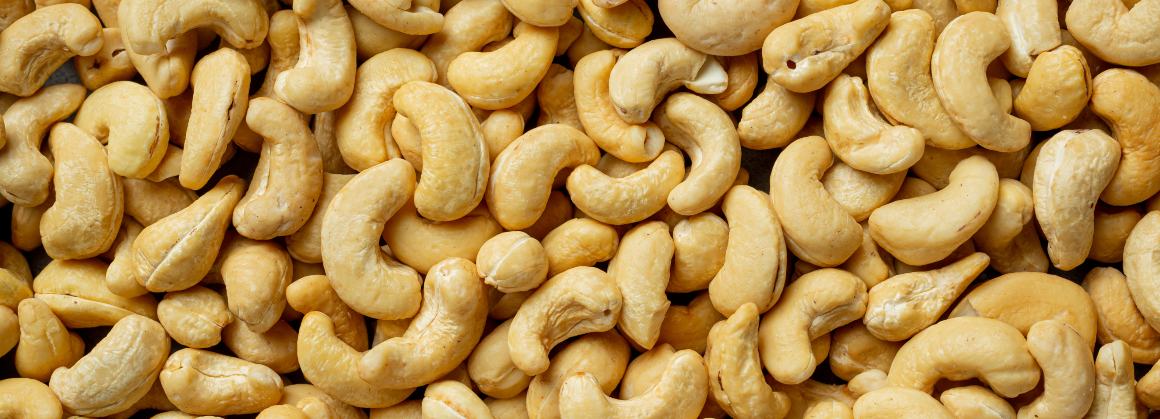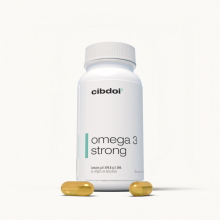Are Cashews a Good Source of Omega-3 Fatty Acids?
Published:
Omega-3 fatty acids are very beneficial for overall health. Getting adequate omega-3s from your diet is important. The main omega-3s are ALA, EPA and DHA. Cashews are a popular nut known to be rich in vitamins and minerals. But do cashews also provide any of the key omega-3 fats?
Contents:
- Overview of Omega-3 Fatty Acids
- Omega-3 Fatty Acids in Cashews
- Comparison of Omega-3s in Cashews vs. Other Foods
- Potential Benefits of Omega-3 ALA in Cashews
- Omega-3s Compared to Omega-6s in Cashews
- Ways to Increase Omega-3 ALA in Cashews
- Most Important Dietary Sources of Omega-3s
- Cashews and Omega-3s: Key Takeaways
- Conclusion
Let's analyze the omega-3 profile of cashews and compare to other high omega-3 foods.

Overview of Omega-3 Fatty Acids
Omega-3 fatty acids are a type of polyunsaturated fat crucial for health. There are three main dietary omega-3s:
ALA
- Short for alpha-linolenic acid.
- Found mostly in plant foods.
- Offers cardiovascular and anti-inflammatory benefits.
EPA
- Eicosapentaenoic acid.
- Primarily found in seafood.
- Supports heart and brain health.
DHA
- Docosahexaenoic acid.
- Mainly from fatty fish and fish oil.
- Vital for eye and brain function.
ALA is obtained from plant sources while EPA and DHA come from marine sources. ALA can convert into EPA and DHA in small amounts.
Adequate intake of all three types of omega-3s is important for overall health and wellbeing. But do cashews offer any significant omega-3 content?
Omega-3 Fatty Acids in Cashews
Here is the omega-3 profile of cashews:
- Total fat: About 46% fat (1).
- ALA content: 10-20 mg in 1 ounce serving (2).
- EPA/DHA content: None.
While cashews do contain tiny traces of the plant-based omega-3 ALA, the amount is quite low at only 10-20 mg per serving.
They do not contain any of the marine omega-3s EPA and DHA.
This omega-3 content is negligible compared to the heart health recommendations for daily omega-3 intake:
- ALA: 1.1 grams for women, 1.6 grams for men (3).
- EPA/DHA: 250-500 mg combined (4).
So cashews cannot be considered a significant source of any of the main omega-3 fatty acids.
Now let’s compare cashews to some top omega-3 foods.
Comparison of Omega-3s in Cashews vs. Other Foods
The omega-3 ALA content of cashews is dwarfed by both marine sources of EPA/DHA and plant sources of ALA:
Cashews vs. Seafood
- Cashews: 10-20 mg omega-3 ALA per ounce
- Salmon: Over 2,000 mg EPA/DHA per 6oz serving
- Tuna: Around 1,000 mg EPA/DHA per 6oz serving
Cashews vs. Plant Sources
- Cashews: 10-20 mg omega-3 ALA per ounce
- Walnuts: 2,500 mg omega-3 ALA per ounce
- Flaxseeds: 6,600 mg omega-3 ALA per ounce
- Chia seeds: 5,060 mg omega-3 ALA per ounce
Clearly foods like fatty fish, walnuts, flaxseeds, and chia seeds are far superior sources of beneficial omega-3 fats than cashews.
Potential Benefits of Omega-3 ALA in Cashews
While the omega-3 content is low, the bit of ALA in cashews may still offer some benefits including:
- Supporting heart health. ALA favorably affects risk factors for cardiovascular disease like inflammation, blood pressure, and lipids (5).
- Reducing inflammation. ALA exhibits anti-inflammatory activities that may alleviate inflammatory conditions (6).
- Supporting brain function. ALA may aid optimal development of the brain, cognition, and visual function (7).
- Improving mental health. Increased ALA intake is linked to potential benefits for depression, anxiety and stress (8).
However, therapeutic doses of omega-3s needed to treat major health conditions are much higher than what cashews can provide.
Still, the modest omega-3 ALA content may contribute to the overall dietary benefits of cashews for wellbeing.
Omega-3s Compared to Omega-6s in Cashews
In addition to omega-3 ALA fats, cashews also contain higher amounts of omega-6 linoleic acid (LA):
- Omega-3 ALA: 10-20 mg per ounce
- Omega-6 LA: 475 mg per ounce (9)
This results in a ratio of omega-6 to omega-3 of about 24:1, which is within healthy ranges.
Potential benefits of the omega-6 LA in cashews include supporting growth, metabolism, bone health and skin/hair health.
So cashews provide a decent balance of both omega-3 and omega-6 fatty acids, despite low absolute amounts of omega-3s.
Ways to Increase Omega-3 ALA in Cashews
Here are some tips to slightly increase the small amount of omega-3 ALA provided by cashews:
- Choose dry roasted unsalted cashews instead of roasted in oils, which may degrade omega-3s.
- Add cashews to dishes along with other ingredients higher in omega-3 ALA, such as salads with olive oil, leafy greens and hemp seeds.
- Pair cashew butter or cashew milk with omega-3-rich foods like chia seeds or walnuts.
- If consuming cashews as a snack, also eat a food providing EPA/DHA like tuna or salmon.
However, the most effective strategy is simply to eat cashews along with other foods naturally rich in omega-3 fatty acids rather than relying on cashews alone.
Most Important Dietary Sources of Omega-3s
Since they are low in omega-3 ALA and provide no EPA/DHA, cashews should not be depended on for meeting omega-3 needs.
Focus on getting omega-3s from these sources instead:
EPA/DHA Sources
- Fatty fish: Salmon, mackerel, sardines, herring
- Other seafood: Oysters, mussels, squid
- Fish oil and algal supplements
- Grass-fed meats and dairy
ALA Sources
- Oils: Flaxseed oil, soybean oil, canola oil
- Nuts: Walnuts, pecans, hazelnuts, pine nuts
- Seeds: Flaxseeds, chia seeds, hemp seeds
- Green leafy vegetables
Aim for at least 8-12 ounces of fatty fish weekly, along with 1-2 tablespoons of omega-3-rich oil or small handful of walnuts or flax/chia seeds daily.
Cashews and Omega-3s: Key Takeaways
In summary:
- Cashews contain only tiny amounts of the plant omega-3 ALA, about 10-20 mg per serving.
- They provide no marine omega-3s EPA and DHA.
- Cashews are very low in omega-3s compared to fatty fish, walnuts, flaxseeds and other omega-3-rich foods.
- The bit of ALA may still contribute some benefits for heart and mental health.
- Focus on other foods in your diet to meet daily omega-3 fatty acid recommendations.
Conclusion
Cashews are very low sources of omega-3 fatty acids, providing just trace amounts of ALA. To meet your omega-3 needs, be sure to include regular servings of fatty fish, flaxseeds, walnuts, chia seeds, and oils like flaxseed oil in your diet.
Enjoy cashews for their great taste and nutritional benefits like vitamins, minerals, antioxidants and healthy fats, but not as meaningful sources of anti-inflammatory omega-3 fats. Aim to get omega-3s from the richest dietary sources for optimal health.










